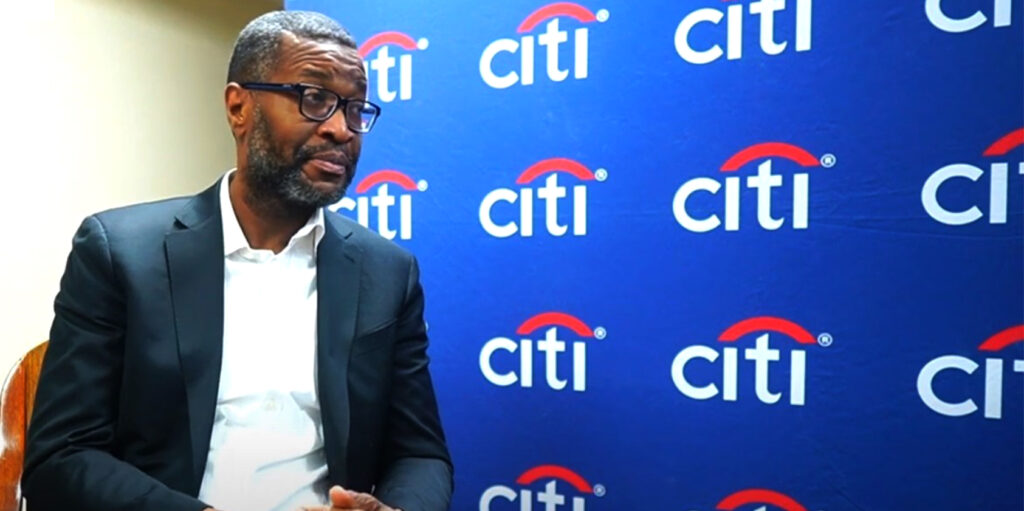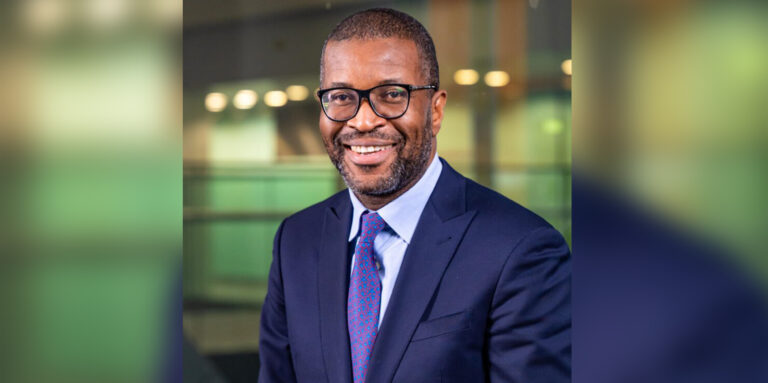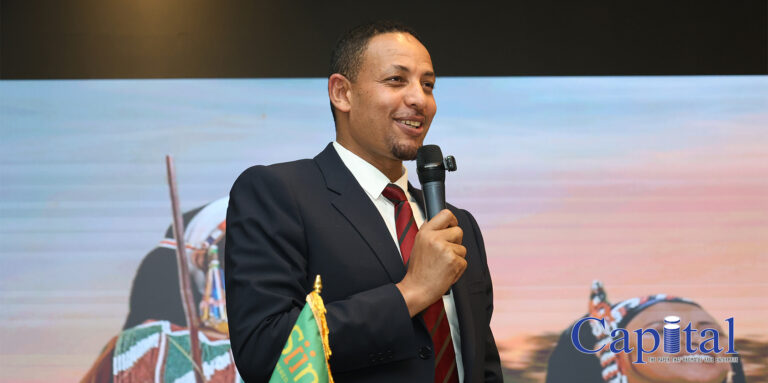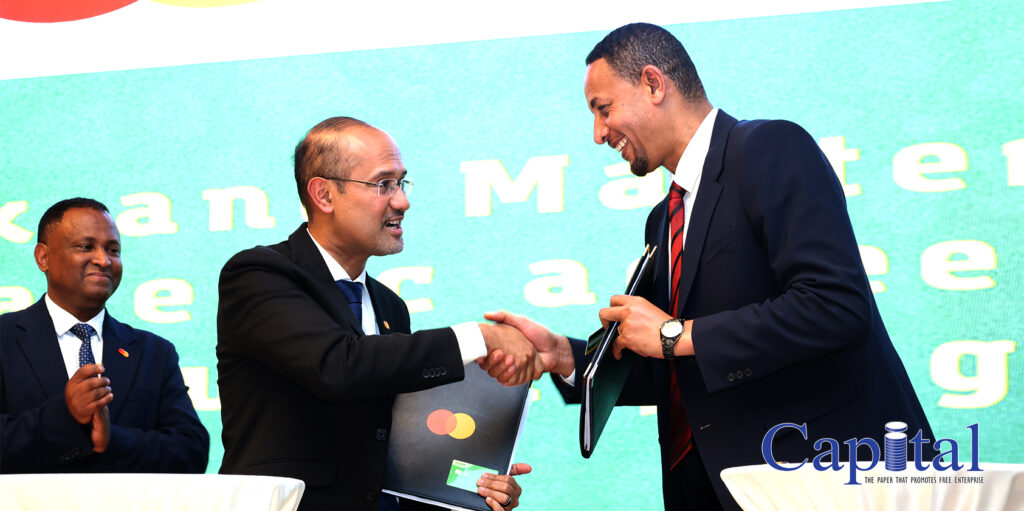Akin Dawodu, Citi Bank’s Sub-Cluster and Banking Head for Sub-Saharan Africa, oversees business operations across 33 countries, including Ethiopia. With over two decades of experience in banking and finance across the region, Akin has been integral to Citi’s strategic engagement with African markets. His extensive background includes leadership roles such as Cluster Head for West and Central Africa and Citi Country Officer for Nigeria.
In this exclusive interview, Akin shares insights on Ethiopia’s market-based foreign currency exchange regime, introduced a year ago, evaluating its successes and challenges. He also discusses Citi’s collaboration with Ethiopian banks and the National Bank of Ethiopia to support the smooth implementation of the new system, including specialized training programs aimed at enhancing technical capacity. Akin elaborates on how Citi adapts global foreign exchange best practices to local market conditions, the hurdles faced by Ethiopian financial institutions, and the outlook for further development of the country’s FX market.
This conversation offers a valuable perspective on the evolving dynamics of Ethiopia’s foreign exchange landscape and the critical role of international partnerships in fostering market transparency, liquidity, and innovation. Excerpts;
Capital: How would you assess the primary successes and remaining challenges of Ethiopia’s market-based foreign currency exchange regime one year after its introduction?
Akin Dawodu: The immediate benefit has been increased FX liquidity in the market and the easing of requirements for importers and exporters. There have also been benefits to the banks who now have more control of the FX flows from their customers. The challenges, however, remain in taming inflation which has increased by the currency depreciation as well as the full technical capabilities of the banks to take complete advantage of the new FX rate regime.
Capital: What specific role has Citi played as a correspondent and global partner to Ethiopian banks during this liberalization?
Akin: Citi facilitated the specialized FX training in May to 26 participants drawn from 13 local banking institutions as way to build technical capacity to help them adopt to the new regime.
Capital: How does Citi collaborate with the National Bank of Ethiopia and local banks to ensure the smooth implementation of the new FX regime?
Akin: Citi is not a direct participant in the market, but as a leading Global correspondent Bank, we continue to collaborate with the National Bank to offer thought leadership and training necessary to support the local banks.
Capital: Can you elaborate on the key technical and ethical principles emphasized in your recent training on rate setting for banks?
Akin: The training placed an emphasis on:
- Structure of the international FX market
- FX Spot, FX Forwards & Swaps
- Money market
- Electronic FX and Live simulations
- Citi’s Treasury & Trade solutions
Capital: How has Citi adapted global FX best practices to the specific context, risks, and opportunities?
Akin: We focused the content of this training on the practical context, with the content infused with local examples in practice. Importantly, the training included live simulations of interbank FX trading that gave the participants a practical feel of the course content.
Capital: Could you share practical challenges encountered by local banks when adopting these practices?
Akin: The lack of familiarity with the broad range of FX/Markets operations, which will be built up over time as the market adopts to day-to-day operations following the new regime.
Capital: What are the main knowledge gaps or operational hurdles you identified among Ethiopian banks regarding FX spot trading, forwards, swaps, and options?
Akin: The lack of familiarity with the various markets’ products available due to the historical context, however, participants were keen and open to learn.
Capital: How did the trading simulations prepare local staff to handle volatile periods or liquidity challenges in real market situations?
Akin: The simulations (undertaken daily during the training) were practical across various scenarios, including volatile scenarios, which prepare the participants well for actual market scenarios.
Capital: In what ways does Citi intend to support ongoing skill development for financial professionals past this initial training?
Akin: We will continue to engage the banks, and plan to roll out electronic channels that support the market evolution. Further, if the circumstances allow, we are open to providing other similar training to participants in the market.

Capital: How has the FX market reform affected volatility and liquidity so far?
Akin: Whilst a variance between the official and underground-economy rates remains, this has significantly reduced compared to the period before the reforms.
Capital: How do you view the updated FX regulations in terms of enhancing transparency and discipline among market participants?
Akin: The updated regulations place enhanced responsibility on the allocation and movement of FX through the banks (away from the central bank), and the fact that each bank is now able and required to publish their daily rates enhances transparency with more information made available to the ultimate users(public) for decision making.
Capital: Ethiopian FX markets have seen pressure from parallel market rates. What is Citi’s perspective on aligning official and unofficial rates, and the reform’s progress so far?
Akin: There is still a noted variance between the official and parallel rates (as indicated above), and the reasons could be varied. As more participants get involved and with enhanced regulatory controls, this should continue to improve. The ideal scenario is to have a full convergence.
Capital: Why would Ethiopia prefer Citi as its main correspondent bank? Why not choose another bank say in China or other places? Akin: Citi is the largest USD clearing bank by volumes globally and has the largest global presence of any bank in the world. This, coupled with our product and technical expertise over our 200 years of history, we are primed as partner of choice for many banks all over the world. In addition, the USD is still the world’s most used currency for global transaction and as a major US bank, we expect to continue to play a key role in supporting global payments and trade







